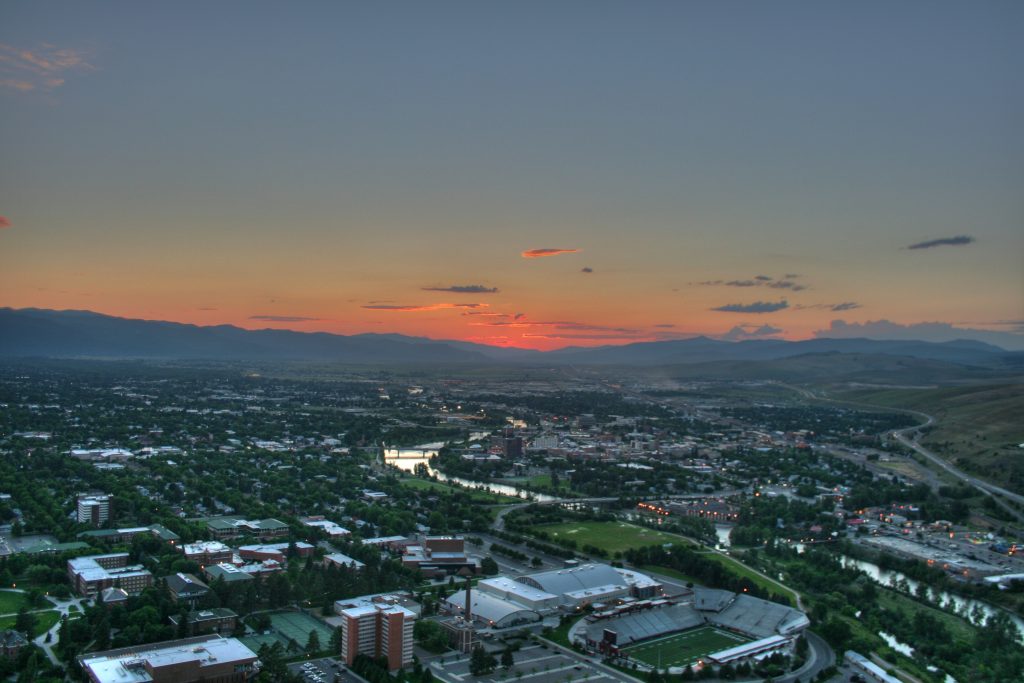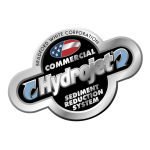Missoula is located in the beautiful state of Montana that is popular for its abundance of natural beauty.
In case you didn’t know, Montana is also the 4th largest city in the USA in terms of sheer size. It’s also a state known for its agricultural prowess.
We can determine the water hardness in Missoula by studying the water situation in the state of Montana.
It’s worth noting that underground aquifers are the main water sources in Montana and, therefore, in Missoula.
What are underground aquifers?
Underground aquifers are underground rocks capable of holding water.
The water held in aquifers is water from above the ground. It made its way there by seeping through the soil and into the space made by the underground aquifers.
How hard is the water in Missoula?
Several water hardness tests conducted over the years have indicated that the water in Missoula is very hard.
The water hardness tests have always given readings above 8 grains per gallon (gpg). Specifically, the level of water hardness in Missoula is 10 grains per gallon (gpg).
Water with a hardness level of 10 gpg should be more than enough to catch your attention.
Why?
Because very hard water comes with negative side effects to your home and health. Please continue reading to find out more.
What is hard water?
Hard water is water with a high concentration of dissolved minerals and ions such as Calcium and Magnesium ions.
Grains per gallon (gpg) is a measurement that tells us the extent of these minerals in a given water sample.
We mentioned earlier that Aquifers are the main source of water in Montana and all its cities.
The water in underground aquifers is hard because as water passes through the soil, it collects and dissolves minerals.
Also, after the water settles in the aquifers, the aquifer rocks tend to dissolve, and their minerals and ions find their way into the water. It’s the main reason why the water in Montana is hard compared to the water in other states.
The advantages of hard water in Missoula
Hard water is indeed perfect for agricultural use.
Did you know that 96% of Montana’s natural water is used for irrigation purposes?
Why?
Because natural hard water has minerals and ions necessary for the healthy growth of plants and trees.
You might be asking yourself, “But why is so much water used for agriculture and not human domestic use?”
Because despite being nutritional to plants, hard water is detrimental to your household.
The disadvantages of using hard water in Missoula
Below are some of the main reasons you shouldn’t use hard water in and around your house.
Hard water destroys houses and appliances
“How?!” You might wonder.
The minerals and ions in hard water are responsible for the formation of a white chalky substance known as limescale.
Limescale is the beginning of all your problems.
If you’re using hard water, then you must have noticed some white or sometimes reddish-brown substance on and around water points like showerheads, toilets, sinks, and on your faucets.
Limescale disfigures your house and is very hard to scrub off the surface.
You’ll also find it inside electrical appliances like kettles and coffee makers.
In appliances, limescale tends to form layers that behave like insulators. These layers end up tampering with your appliance’s efficiency.
Also, appliances with limescale tend to have very short lifespans.
Have you been paying electric bills that are significantly higher than you expected them to be?
Then, limescale might be your culprit.
The limescale forces appliances to work harder than usual. Therefore, consuming more electricity, and as result, spiking your electricity bills.
Limescale will also reduce the effectiveness of your detergents. It’s the reason you’ve been spending so much money on detergents.
Do you see it now? How hard water will not only damage your house, health, clothes, and appliances, but it will also end up sucking a lot of money from your pockets?
Hard water affects your hair and skin
The high concentration of minerals in hard water is bad for your skin.
Why?
As you shower or bathe with hard water, the minerals end up on your skin.
Since they’re of high concentration, they’ll end up absorbing moisture from your skin and hair leaving them dry.
Dry skin isn’t pretty. It’s itchy and also very uncomfortable. On the other hand, dry hair is also itchy and prone to split ends.
Hard water damages your clothes
Are your clothes uncomfortable without cloth softeners? Then hard water in your home is the culprit.
Hard water reacts with your detergents to form “soap curd.” Soap curd has a sticky and itchy effect on your skin.
The minerals in hard water also tamper with your clothes’ fibers, making them stiff, brittle, and easy to tear.
So, what is the solution to the hard water problem in Missoula? Soft water. That’s the solution to all these problems.
Soft water and water softeners
Soft water is water with little to no dissolved minerals and ions. It’s the exact opposite of hard water.
Sure, soft water is un-recommended for agricultural use. However, it’s the best for domestic use.
What are water softeners?
Water softeners are devices used to remove the dissolved minerals in hard water and convert it into soft water.
There are so many types of water softeners in the market. Some are simple stand-alone units, and others are systems that serve entire households.
Most water softeners are salt-based and remove the dissolved ions through the ion exchange process.
Please note that salt-free water softeners are also available in the market. It all depends on what you prefer.
Is soft water safe to drink?
Yes, soft water is a hundred percent safe to drink.
Some people argue that soft water isn’t safe to drink since the minerals were exchanged for sodium, which isn’t unhealthy when consumed in large amounts.
Water softeners indeed remove the dissolved ions in exchange for sodium. However, the amount of sodium added is significantly small and perfectly safe to drink.
Here is the proof.





